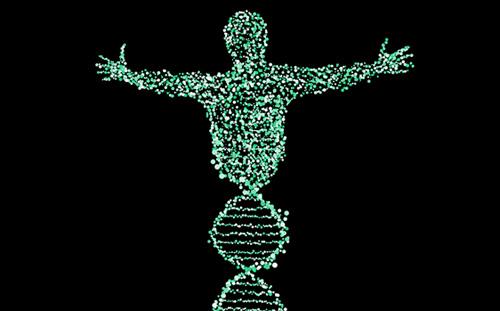
The question always, Mystery Science Theater 3000 creator Joel Hodgson told TV Worth Watching in an interview over lunch several years ago, is not whether one can do something but rather whether one should.
Hodgson had just been asked whether he would ever consider doing a parody of a classic film like 2001: A Space Odyssey, as opposed to the long list of B-movies MST3K had parodied over the years and decades.
Same question, bigger scale.
Nova's extended, 90-minute season opener, Human Nature (on PBS, Wednesday at 8 p.m. ET, check local listings), examines — in thoughtful, often thought-provoking detail — recent breakthroughs in genetic research and whether scientists are best positioned to weigh in on the ethical, moral, and sociological implications of manipulating DNA gene therapy. At stake are nothing less than human life and the possibility to limit and even eradicate diseases and lessen the chances of medical conditions when they're passed on from one generation to the next, through family DNA.
It's the eternal question all over again: not whether we can, but whether we should. Science fiction is full of cautionary tales about what can go wrong when well-intended scientists play with natural selection, but this is no longer science fiction. It's real, and it's happening. Now.
Human Nature speaks for itself. It's TV worth watching, and it's especially timely and profound now, in these difficult times, if only as a reminder that there are bigger, more important issues facing us than who wins an election in November.
The big picture was weighing on the minds of Human Nature writer-producer Adam Bolt, University of Wisconsin (Madison) bioethicist, law professor Robin Alta Charo, and molecular biologist and co-founder of TruGenomix, Tshaka Cunningham, when they addressed reporters on a Zoom conference call last month, promoting Human Nature for PBS. Cunningham is also a Baptist minister, which perhaps gives him a unique and personal perspective on larger-than-life issues.
The three were joined by David Sanchez, a high-school senior with sickle cell disease and a living, breathing reminder that these issues are not just in the abstract or philosophical. Real lives will be affected by the decisions science makes in the coming weeks, months, and years. There seems to be little end to the difficult questions raised by technology in the age of COVID. Where do we draw the line with gene manipulation? Whose diseases are cured? Do parents have the right to choose their children's future? Could gene manipulation change the course of human evolution? Is that something we need to worry about?
"It's going to be difficult," Cunningham admitted, "to actually make sure that bad actors won't have access. The situation that happened in China — where you had a rogue scientist who actually used CRISPR (DNA sequencing) to engineer babies, completely illegal and against all scientific norms — happened despite the checks. He was still able to do it. This is just a fact of the new technology being out there.
"I think it is going to be incumbent upon the scientific community to do everything we can to police these kinds of bad actors. I think nations, governments, and leaders around the world are going to have to come together, as well as citizens, and create ethical frameworks in which to do this.
"I think that's what we have been doing or trying to do, but the technology is quite new, and it is very impactful…. This has power that's even greater than that of the nuclear bomb. I think there's some truth to that.
"Like they said in Spiderman, with great power comes great responsibility. So those of us who are the creators or the purveyors of that power have to help the ones who help police it, to make sure it's not used for great evil."